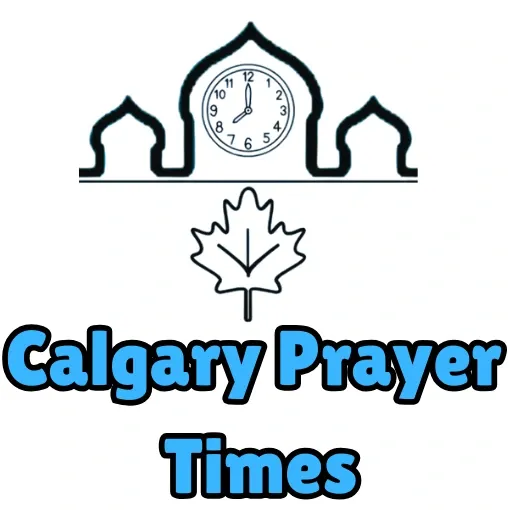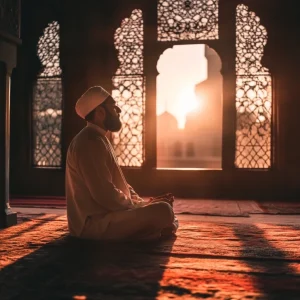Traveling During Ramadan: Maintain Fasting and Spirituality
Traveling During Ramadan: Maintain Fasting and Spirituality When you decide to travel during the observance of Ramadan, you will face specific difficulties. You will face added difficulty with fasting, prayers, and spiritual observances because you are not in your habitual surroundings. A bit of thought in advance enables you to maximize your trip but also preserve the spiritual importance of the Ramadan experience. The following guidance provides methods for balancing your Ramadan observances when traveling for any purpose around the globe.
Plan Your Travel Schedule Wisely

Effectively scheduling your fasting period stands as the main critical issue when you decide to travel during Ramadan. The lunar nature of Ramadan leads to shifting fast periods each year and makes it more challenging to observe the month when you travel across multiple time zones. Your fasting schedule faces disruption, so you need to make advance arrangements.
Consider these points:
Obtain knowledge about local time in your upcoming travel destination by checking the time zone of your destination before your departure. The Muslim Pro and iPray applications provide prayer time calculation services for any place in a different time zone. The apps function to help manage Suhoor and Iftar meals specifically during time zone changes while traveling.
You should arrange flights with ideal schedules for periods when you need to fast when traveling. Fasting becomes simpler when you choose to fly during night hours because you spend most of the fast in a state of sleep. Select flights with enough available time to prepare for the Iftar meal before takeoff or Suhoor before landing if you cannot fast during the flight.
Before your trip, carefully select the meals you will eat because travel limits your access to familiar food options. The suitable portable foods for Iftar and Suhoor include dried fruits combined with nuts and protein bars. Accommodation facilities like hotels and guesthouses should verify their Ramadan meal services or accommodate your fasting schedule through meal arrangements.
Make a smart travel plan.

Your ability to perform prayers in a correct manner during the holy month of Ramadan requires planning, especially if you encounter strange surroundings. The accessibility of prayer spaces remains limited in many airports along with stations and hotels, thus requiring proper preparation.
Tips for Managing Prayers During Travel:
Many major airports, together with hotels and a limited number of public areas, maintain designated spaces for prayer rituals. The Happy Ramadan and Muslim Pro apps, together with their websites, let you find prayer spaces that exist both at your places of destination and along your journey. The majority of airports feature designated peaceful areas where Muslims can perform their prayers at any time.
A flexible prayer plan should be established because travel requires adaptability regarding prayer timings, especially during periods of transit. Travelers can properly combine their daily prayers together in case they miss the recommended prayer timings (Dhuhr and Asr or Maghrib and Isha). You should pray whenever possible after encountering any delay.
A portable prayer mat needs to be included in your carry-on or travel bag for convenient use. You can pray without difficulty anywhere you stand because carrying a prayer mat lets you perform rituals on planes, in hotels, and at outdoor locations. A prayer mat functions as an efficient tool to locate appropriate clean areas for performing prayers.
Travelers have access to numerous applications that supply prayer time alerts to prevent missing any of their scheduled prayers throughout their trip. When traveling with Muslim beliefs, you can use smartphone applications to locate the proper direction for prayer in addition to using them to discover the Qibla direction for prayer.
Staying hydrated and fed is key at Suhoor and Iftar.

Proper hydration and nutrition matter the most for an individual practicing fasting during Ramadan, especially while traveling. For maintaining health and energy levels, you need to pay attention to proper hydration and nutrition regardless of your current time zone location or unknown food surroundings.
Hydration and Nutrition Tips for Traveling:
Passengers who travel by plane or visit hot climates should take dehydration seriously since it can develop easily during these times. Drink plenty of water intentionally throughout daytime hours between the breaking of fast time (Iftar) and the starting of fast time (Suhoor). Water, together with non-caffeinated herbal teas, provides the best hydration, while electrolyte drinks supplement them both.
Nutrient-rich foods should be your choice when you eat during the times of Iftar and Suhoor. Your meals should include oats or brown rice combined with chicken or eggs alongside avocados or nuts for healthy fats. Heavy foods, along with exceptionally spicy meals, should be avoided because they may cause stomach distress and sluggishness while fasting.
For those using plane or train transportation, it is wise to bring health-oriented snack foods for the Iftar meal. The combination of dried fruits together with protein bars and nuts makes up an excellent selection of portable food sources. You should stay away from foods with sugar and processing because these items will cause a quick drop in energy levels.
During your visit to a foreign nation, you can experience regional Ramadan dining customs by making use of local Ramadan cuisine. Various societies maintain specific dishes that people use to observe their fasting period. Traditional Ramadan meals in visiting locations make excellent dining choices, yet portion control remains important since fasting follows a full day of abstention.
During Ramadan trips, make time for spiritual things and Muslim ways.

The holy season of Ramadan allows individuals to develop spiritual strength through reflection no matter what logistics traveling might bring to them.
Several techniques help travelers maintain their spiritual bond with religion during trips.
Although your environment changes, make a personal Ramadan schedule that remains adaptable. Schedule time each day to study the Quran and both submit prayers and practice remembrance of Allah through Dhikr. Every production stop needs consistent spiritual practice scheduling no matter the accommodation type.
A visit to local mosques should be planned when you are present in Muslim-majority areas either as a nation or as a municipality. People can perform their prayers while they hear special Taraweeh prayers during congregation in Ramadan. You will develop stronger ties with the worldwide Muslim community through your participation in these spiritual prayer gatherings.
Ramadan travel experiences help people appreciate their fortunate condition for being able to fast despite their active movement. Take moments to think back about your adventures, after which acknowledge your luck from being able to travel along with preserving thoughts for people lacking these travel opportunities.
The online world features various Ramadan content that includes Quranic reflections together with motivational lectures. Travelers should interact with Islamic content utilizing audio or video materials and following inspirational figures on their social media platforms.
Travelers need to know the rules and options for fasting.

Islam includes travel allowances that permit freedom for individuals going on travels during the month of Ramadan. The Quran provides flexibility for fasting requirements, which includes specific accommodations when people encounter difficulties such as travelers.
Fasting Flexibility for Travelers:
The Islamic teaching allows travelers to end their fast by breaking it when they reach distances beyond 48 miles and their travel becomes moderately challenging because they can make up these days later. The Islamic teachings grant flexibility relating to fasting because the goal is to prevent the burden of fasting from weighing on travelers during their journeys. Attrition from fasting is acceptable, but you can also keep the fast if you feel up to it during your travels.
When you decide to break your fast while traveling, you should remember to perform the missed fasts later in the period after Ramadan has concluded. Any day after the end of Eid serves as a valid time to perform fasts that had been missed during Ramadan.
FAQs
Conclusion
The experience of traveling during Ramadan includes multiple chances along with specific hurdles to face. Through proper scheduling and mindful thinking, anyone can sustain their religious dedication no matter how distant they are from their familiar environment. While on the move, you should dedicate time to scheduling your meals and hydration needs while accepting diverse experiences related to Ramadan practices in various settings. The spiritual advantages of Ramadan can be fully embraced by people who travel either for work or pleasure during this holy month.







